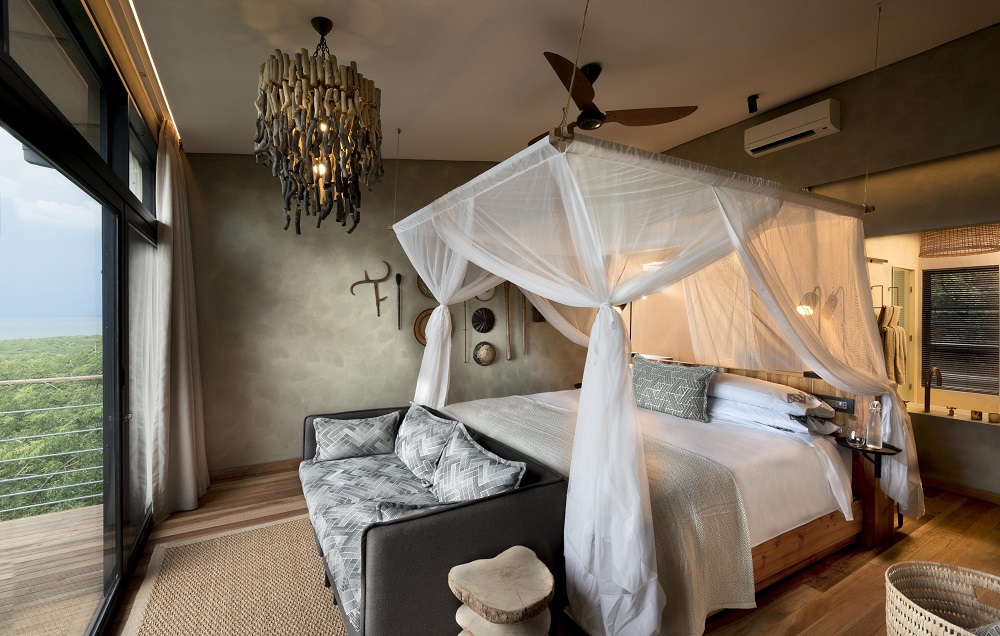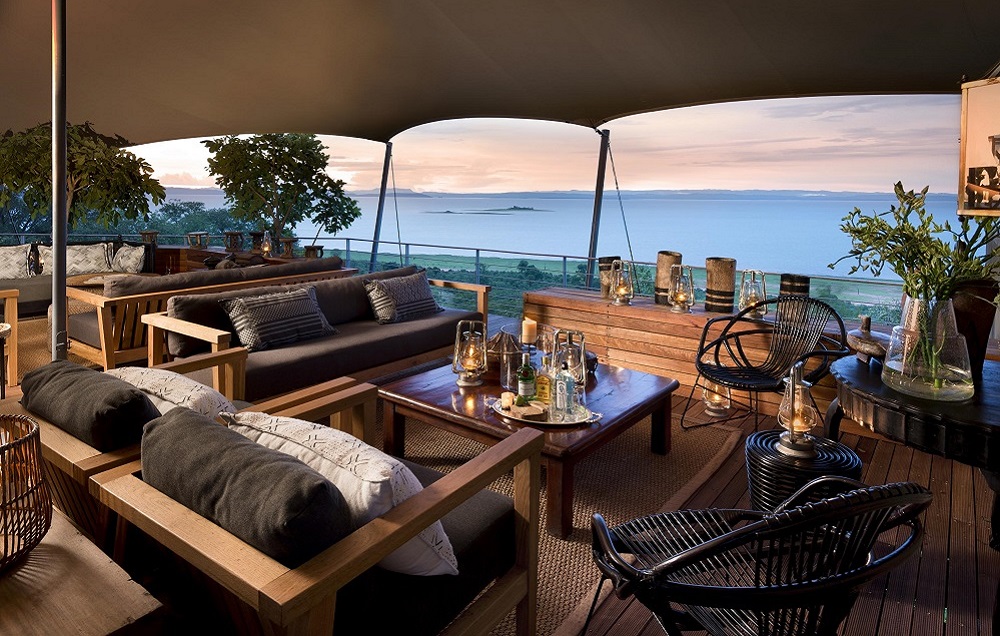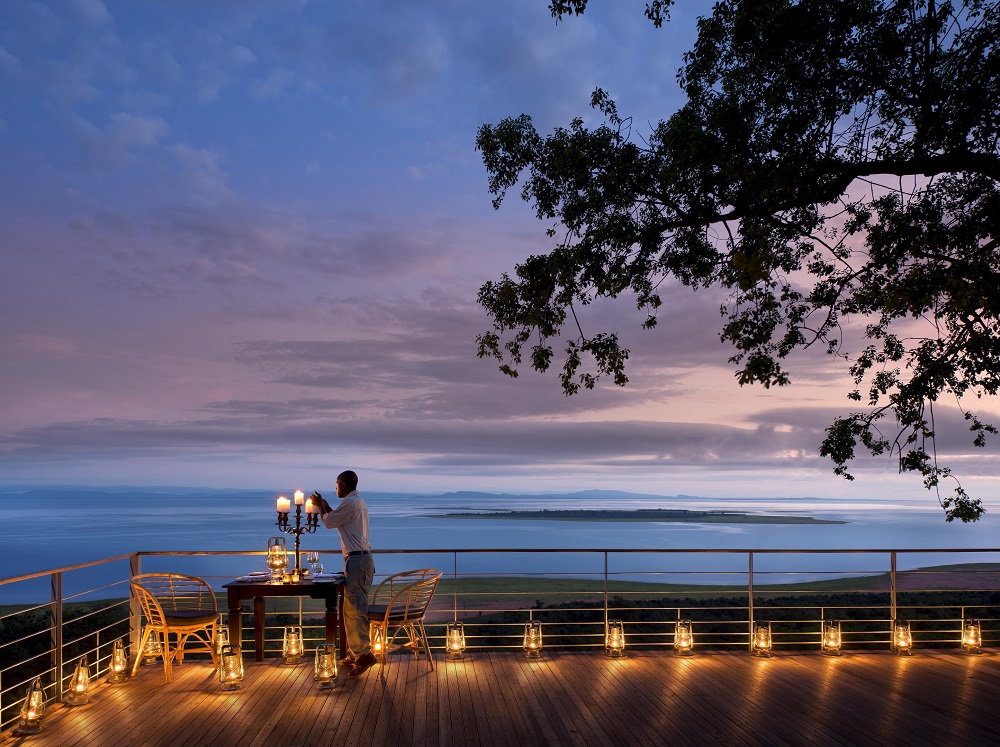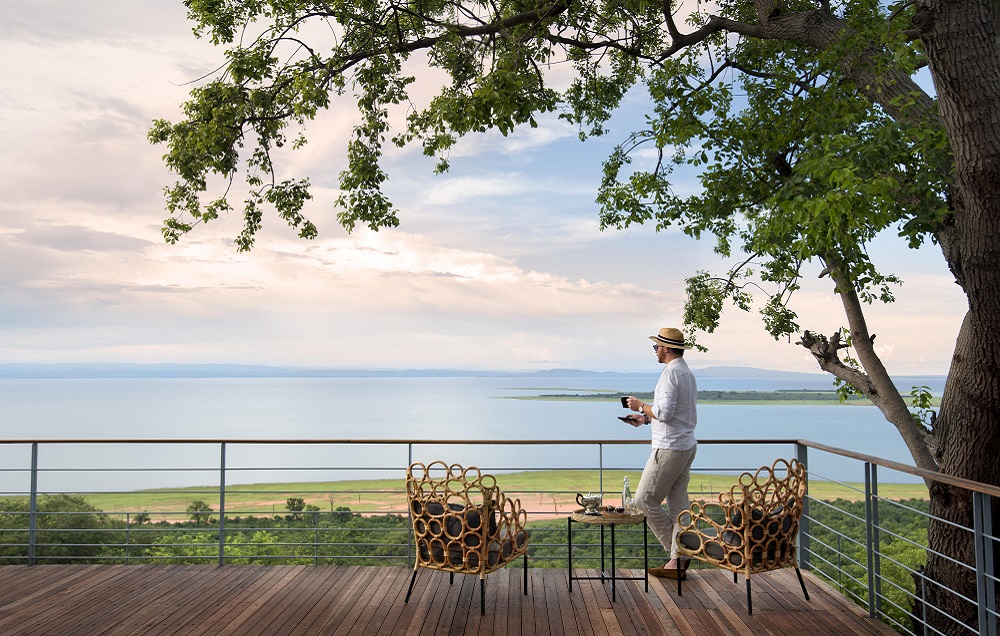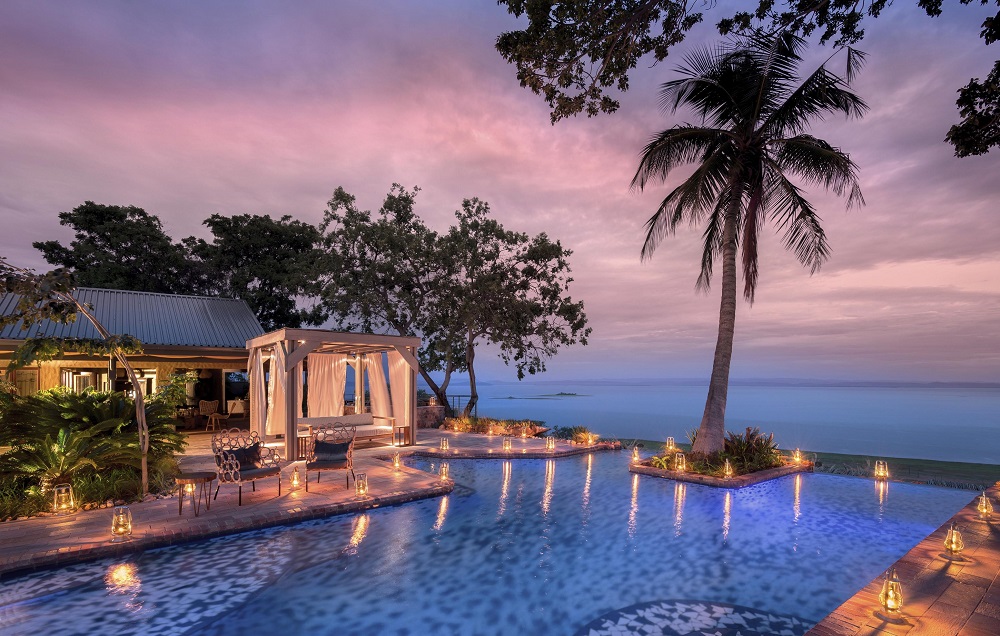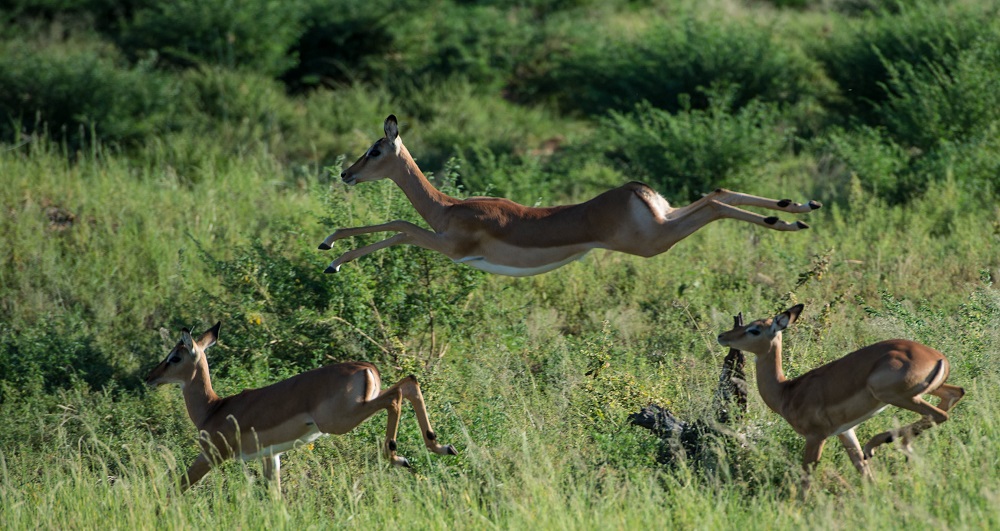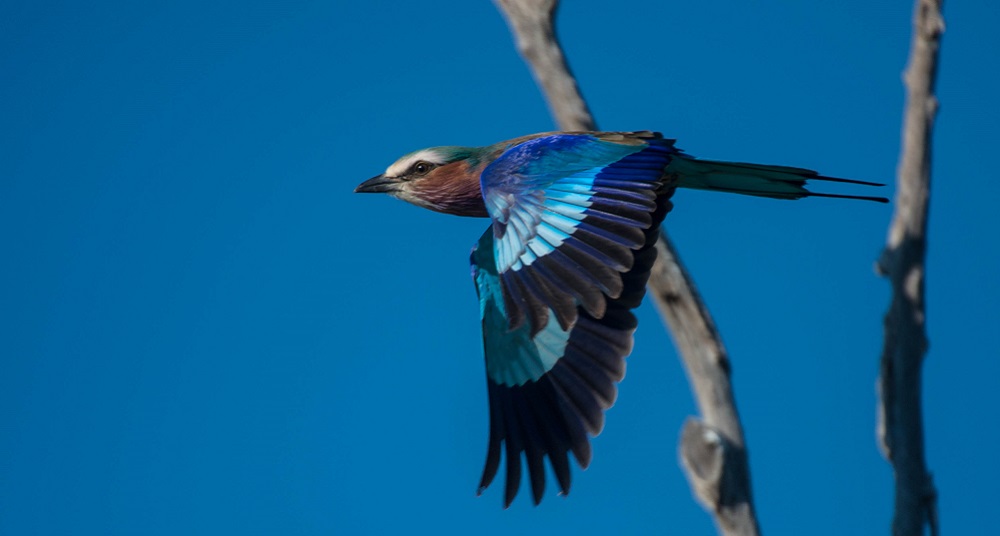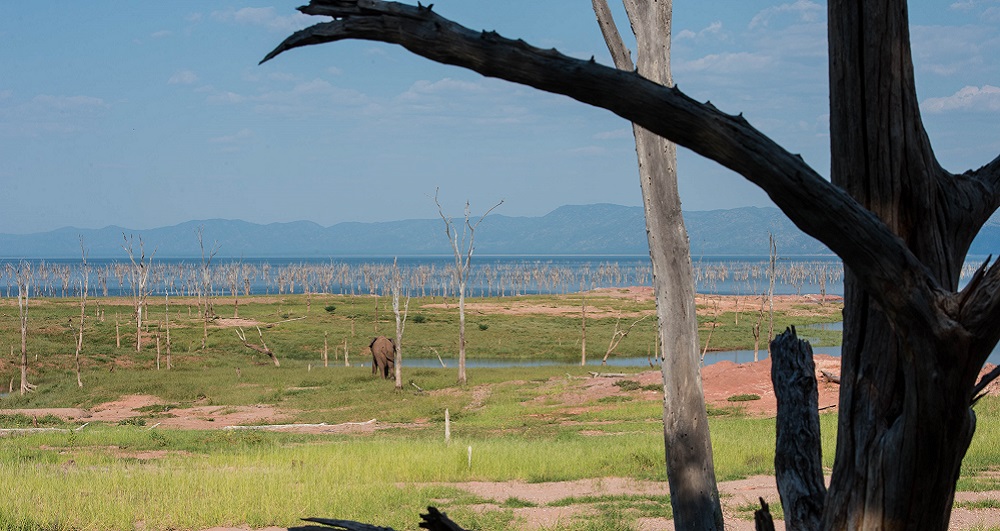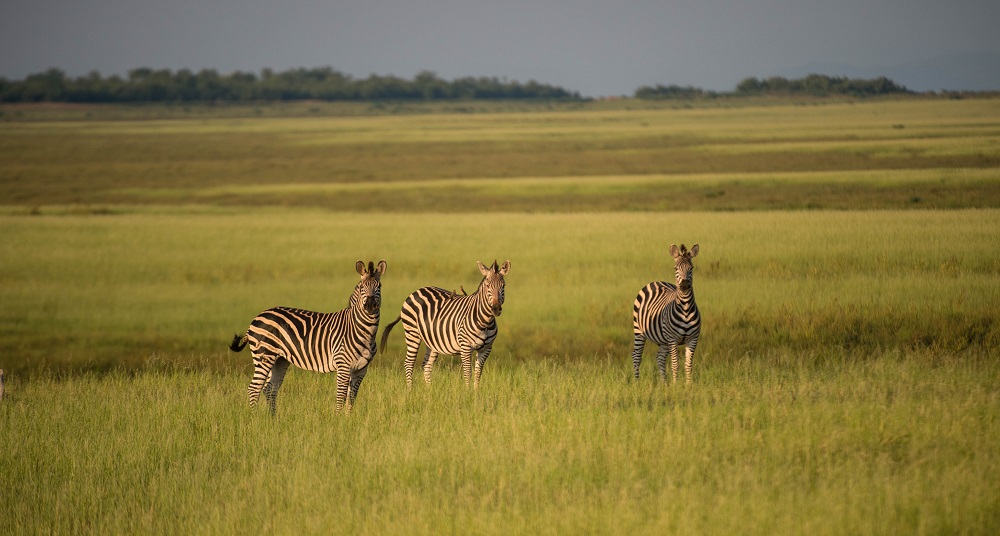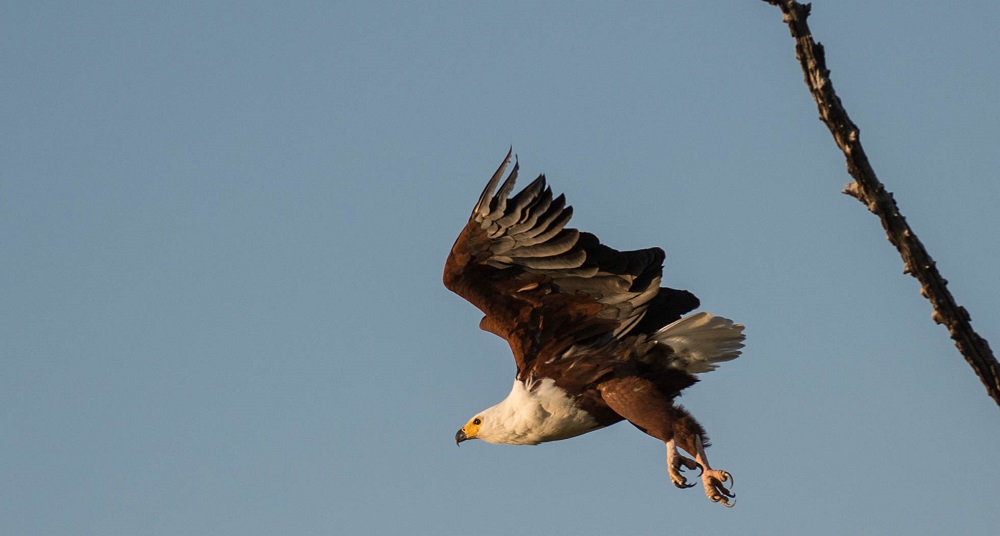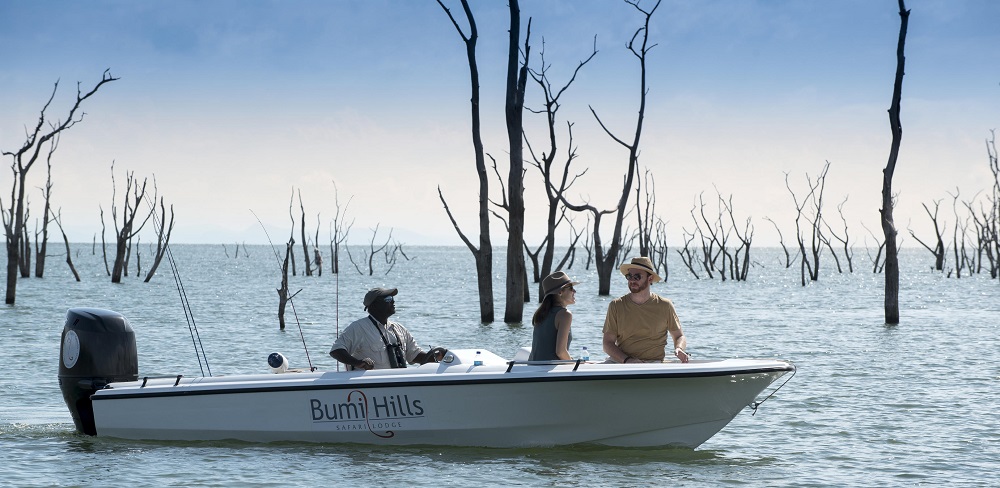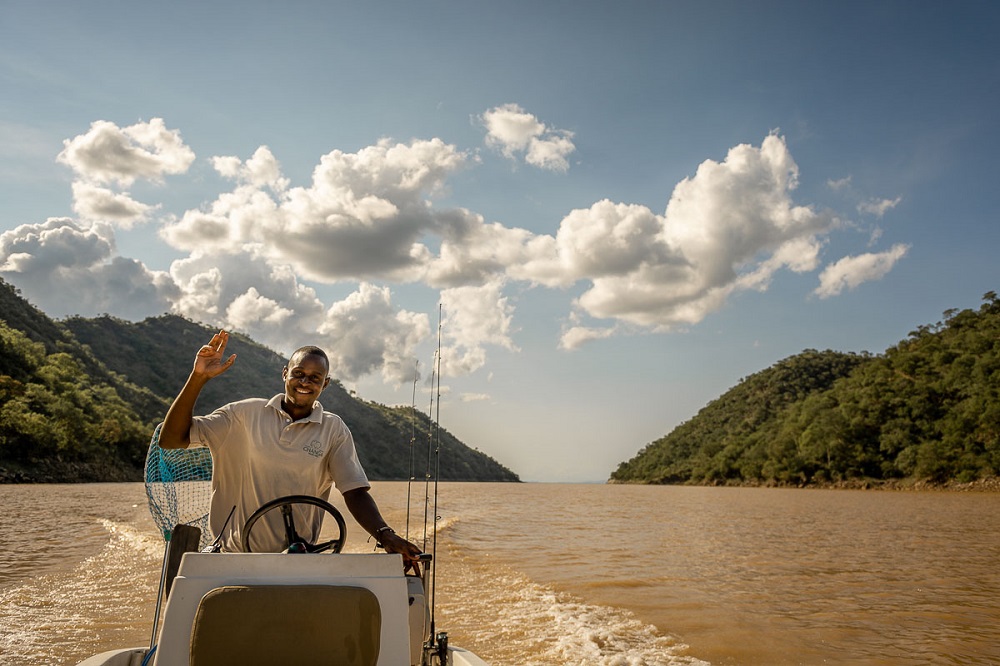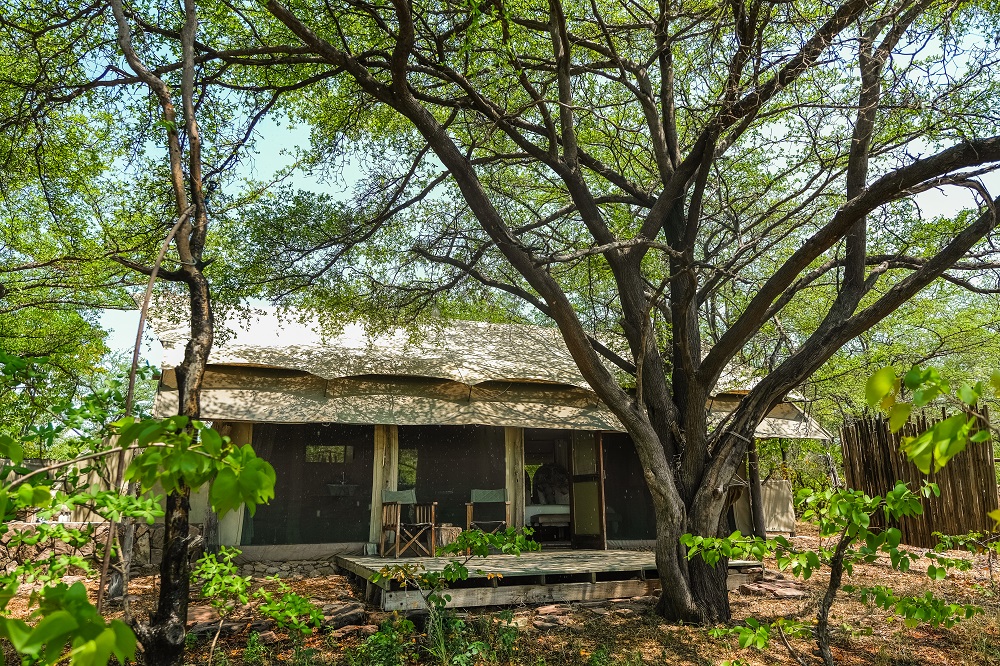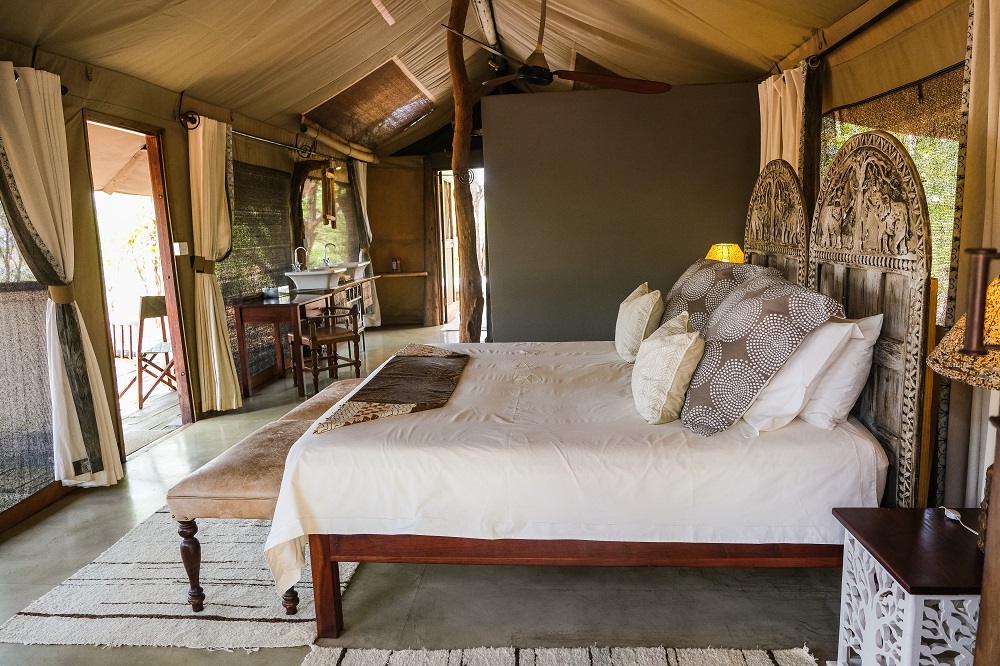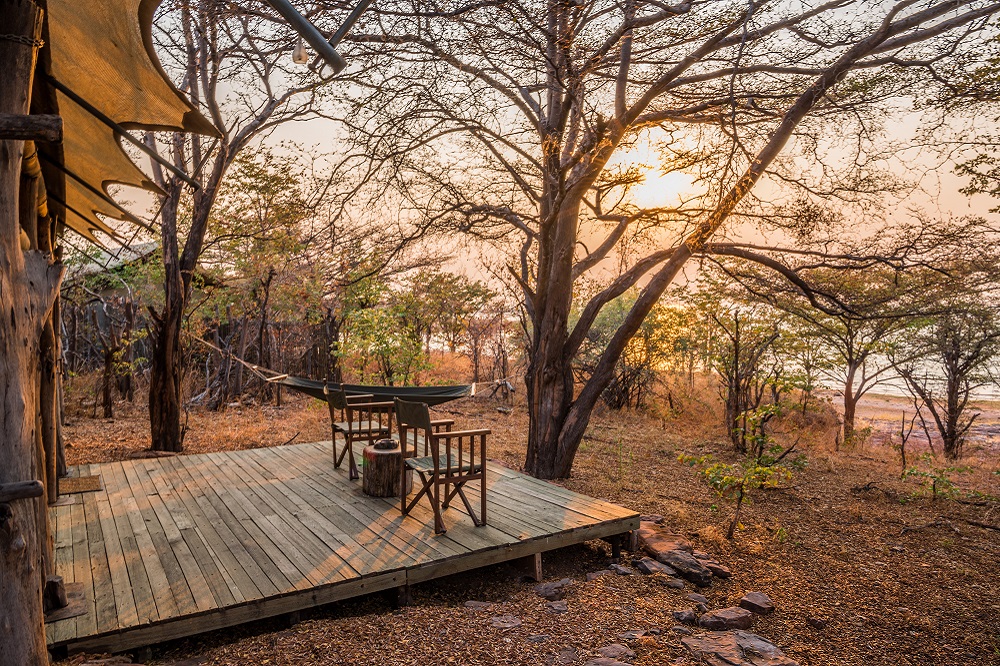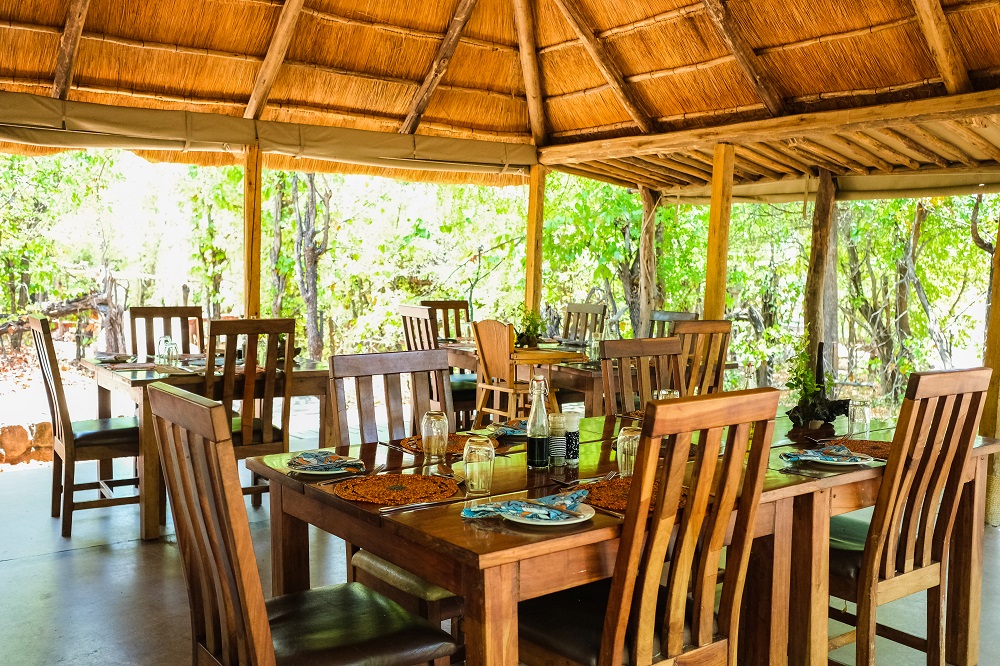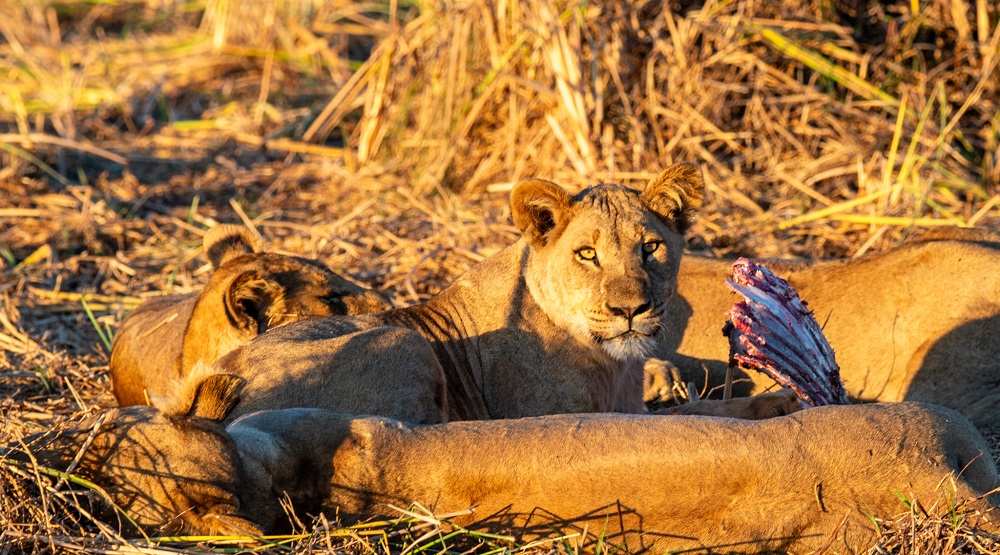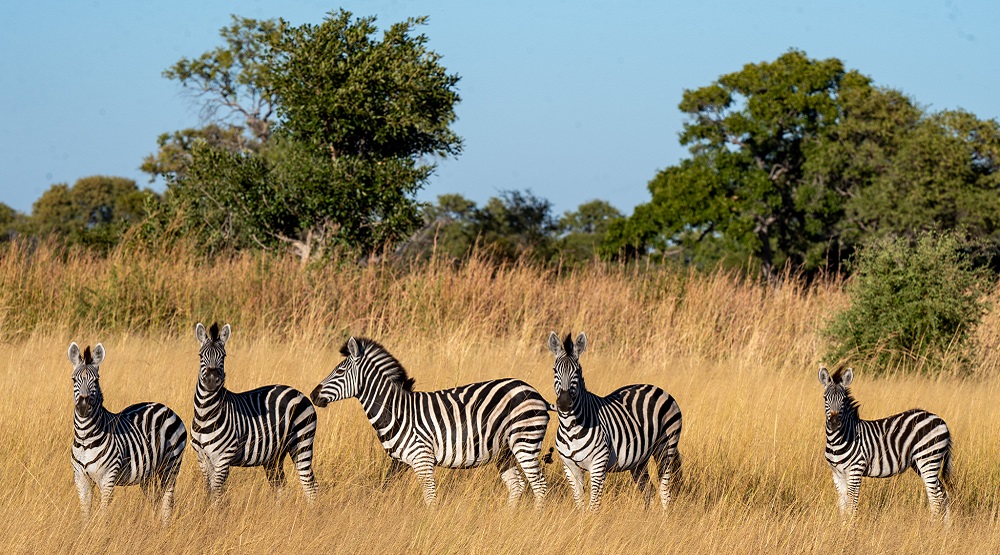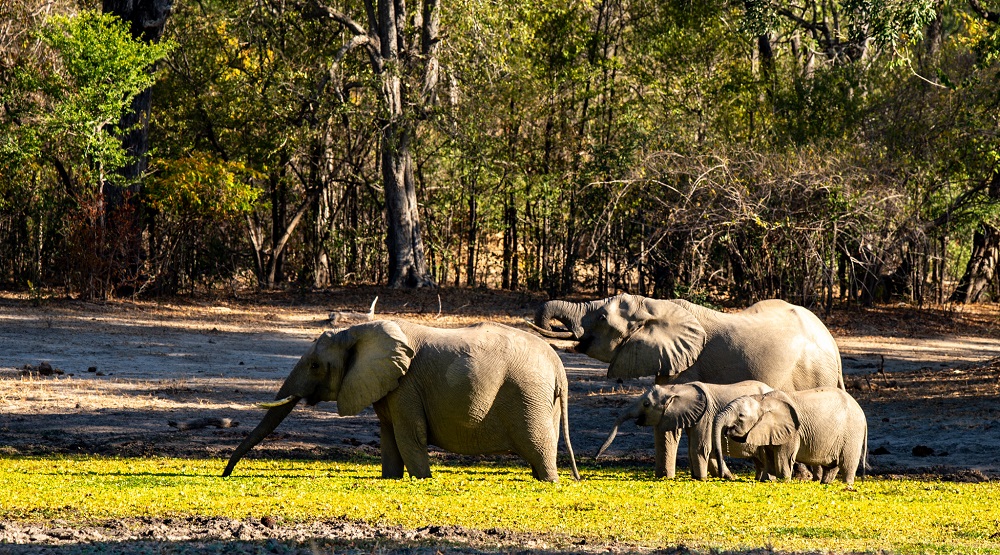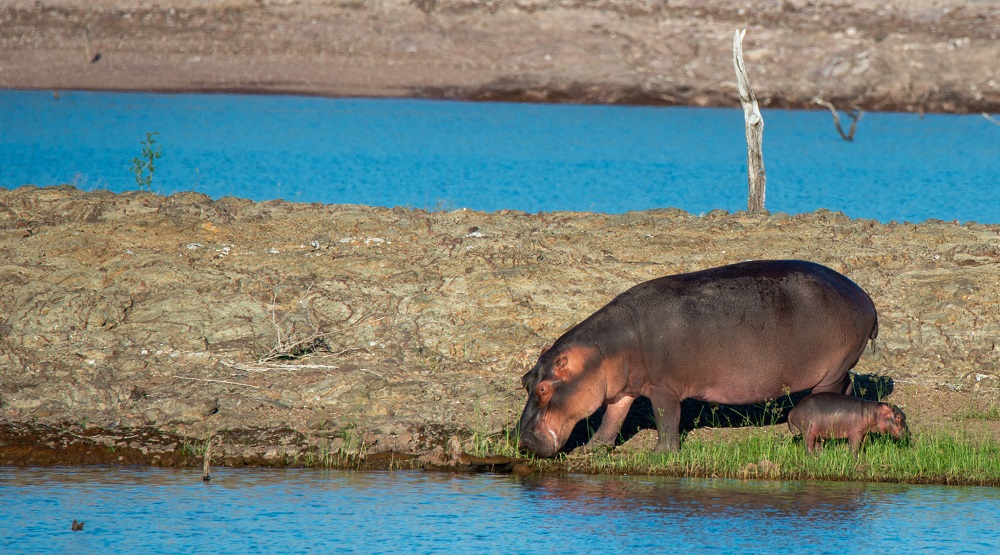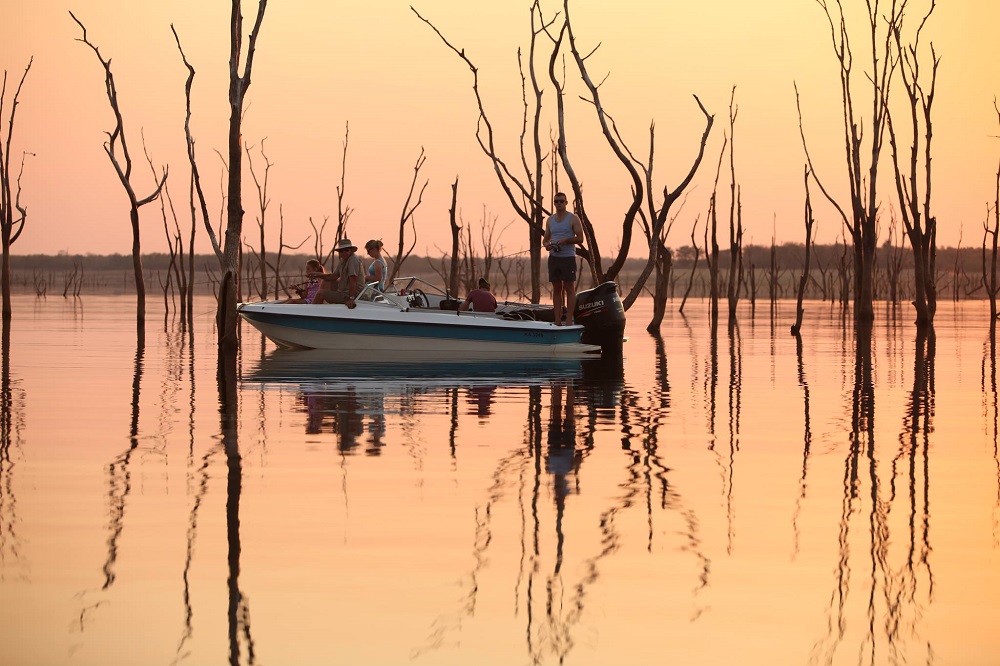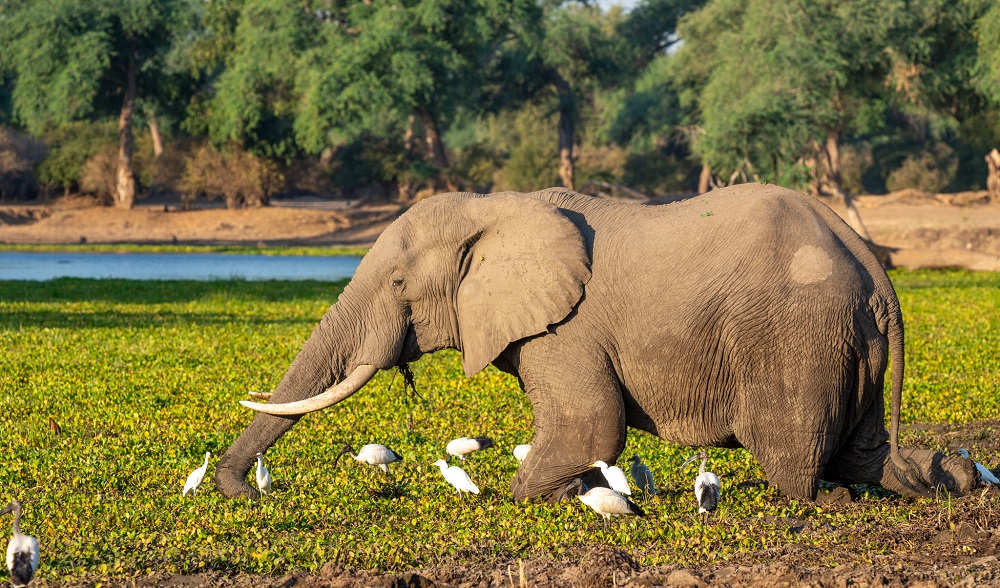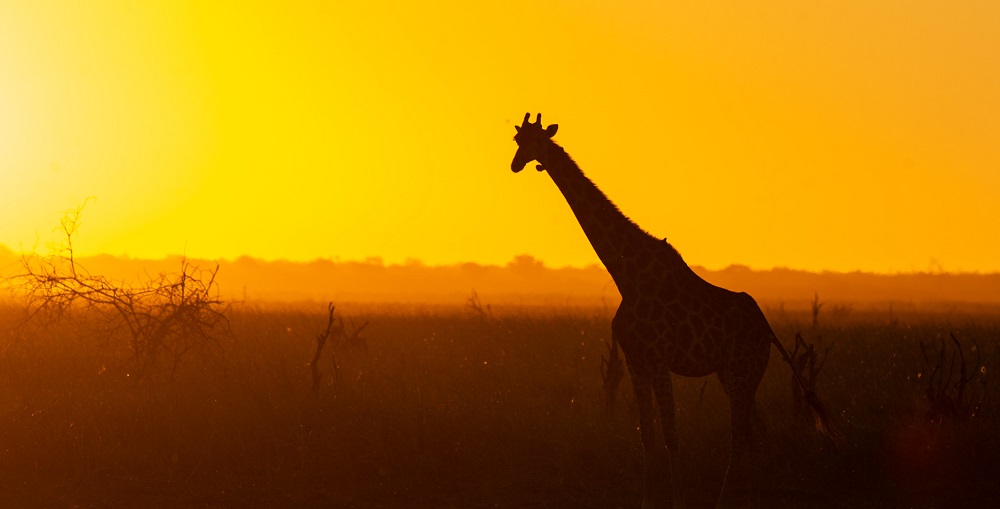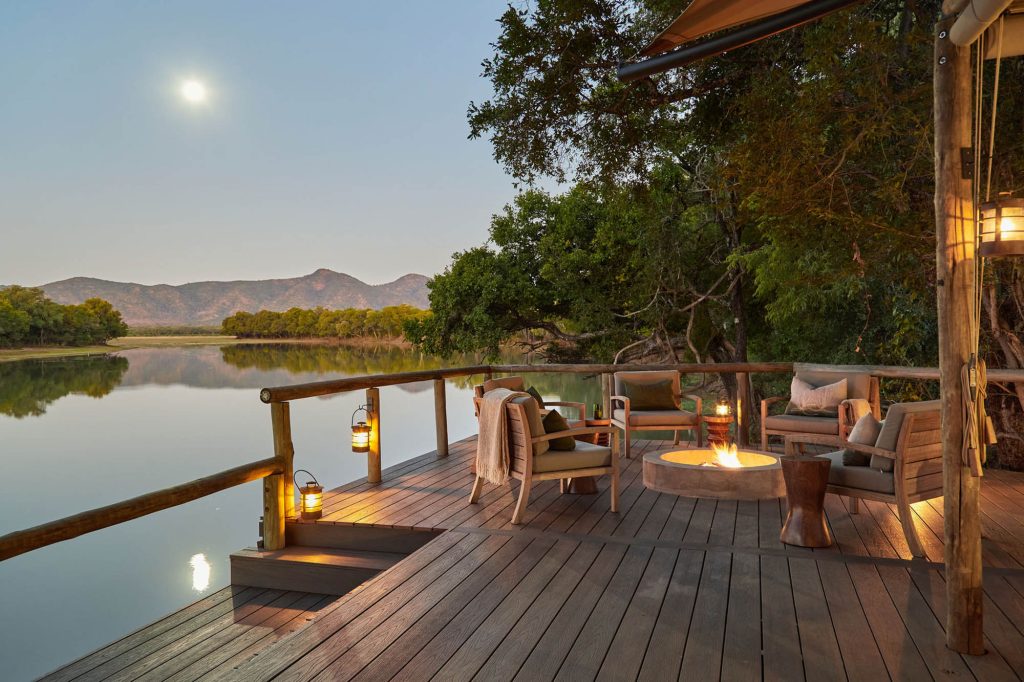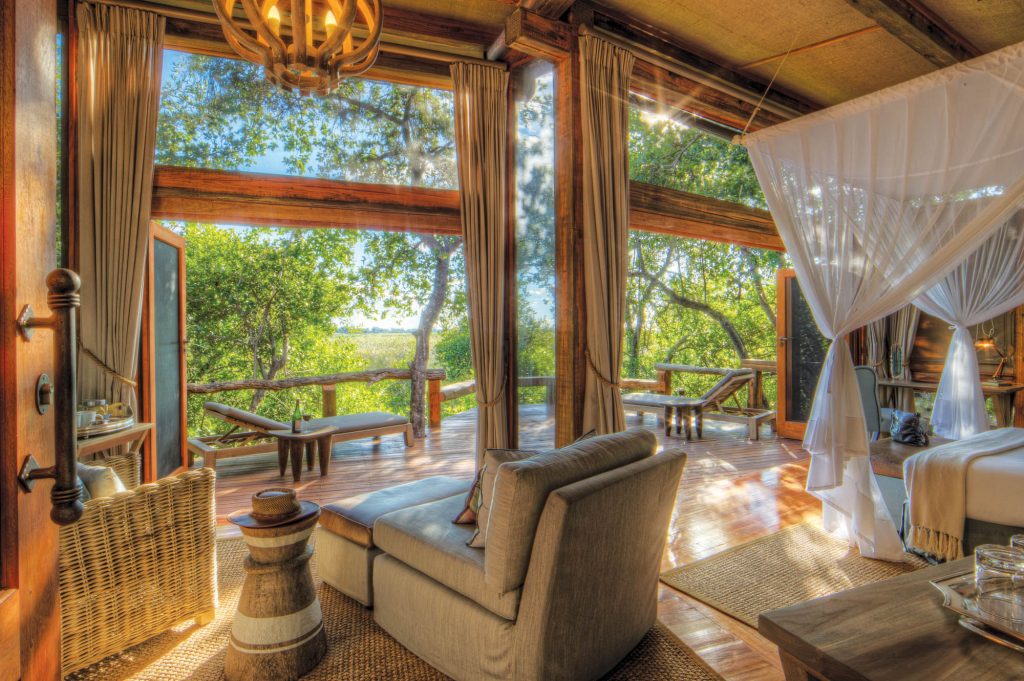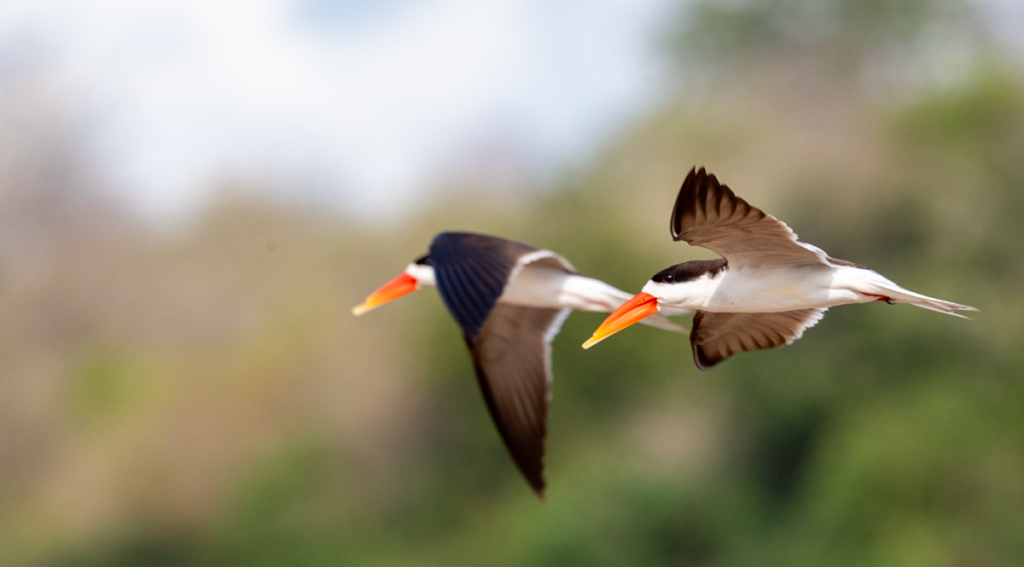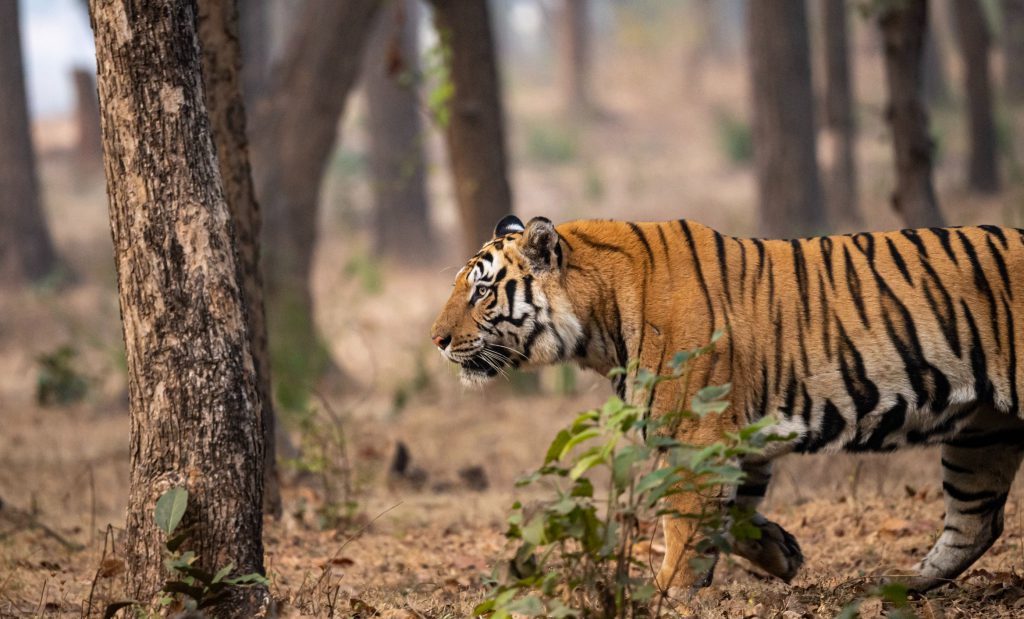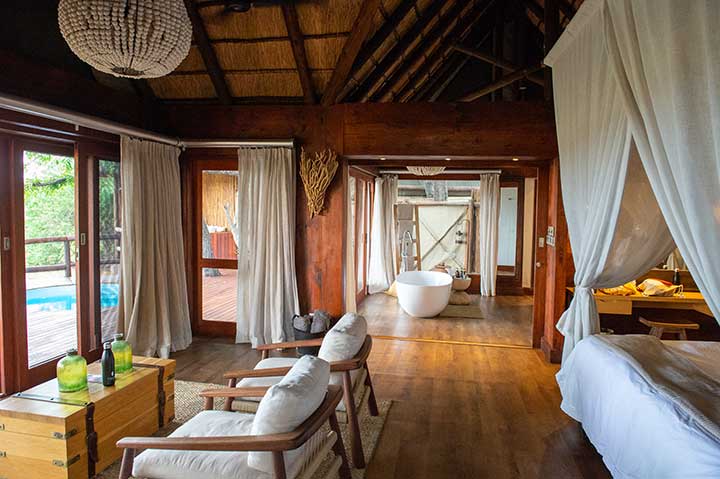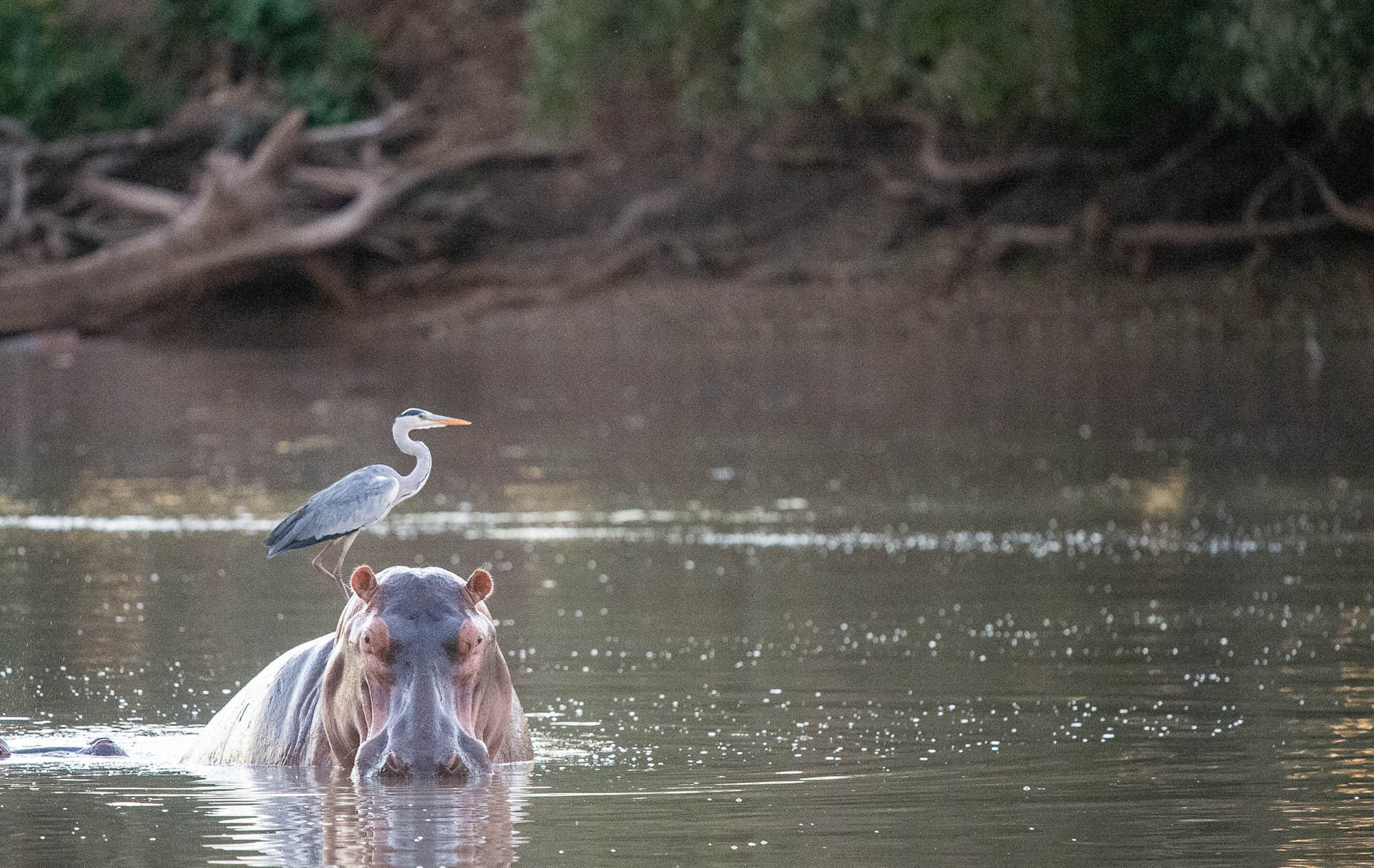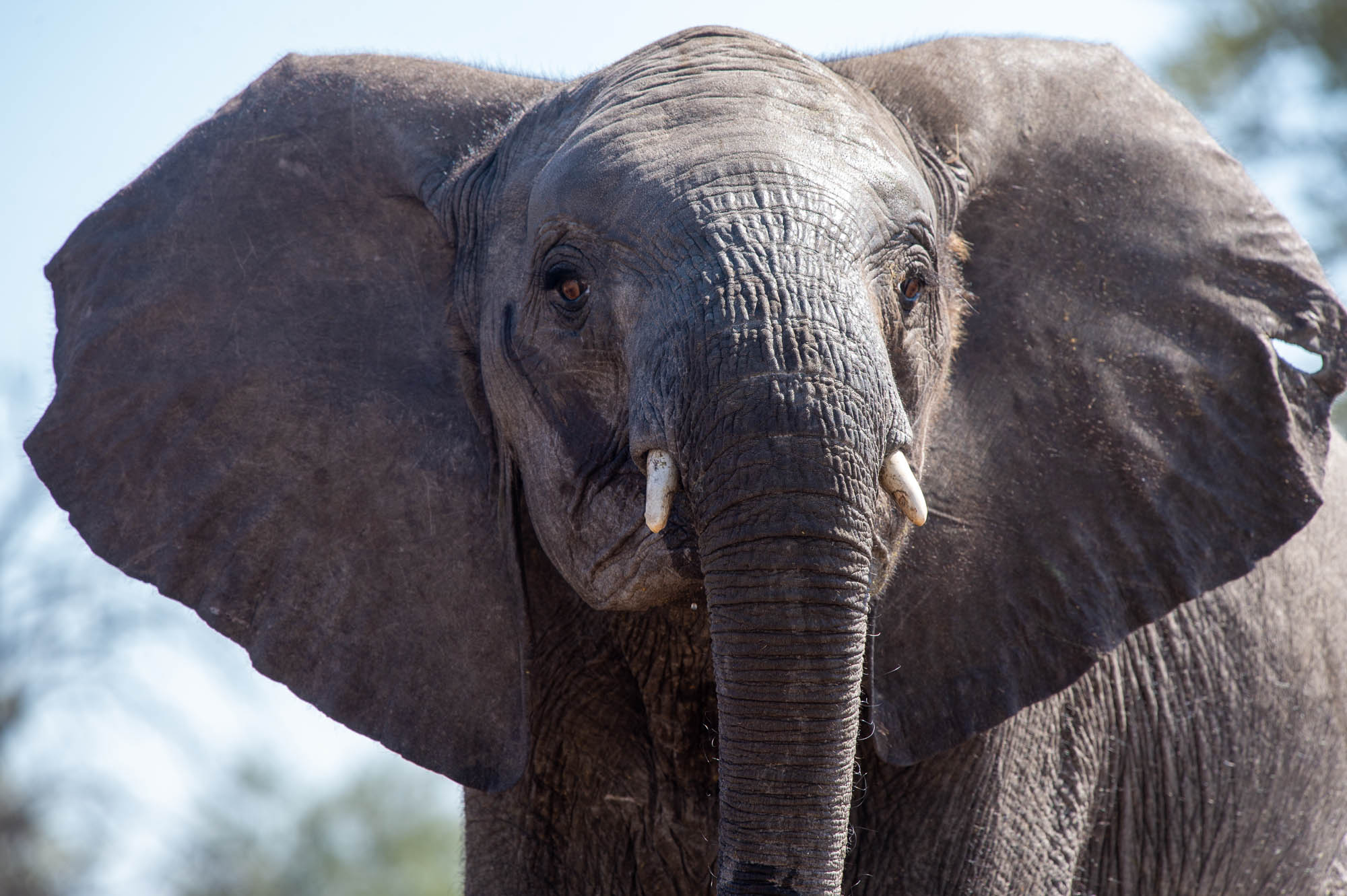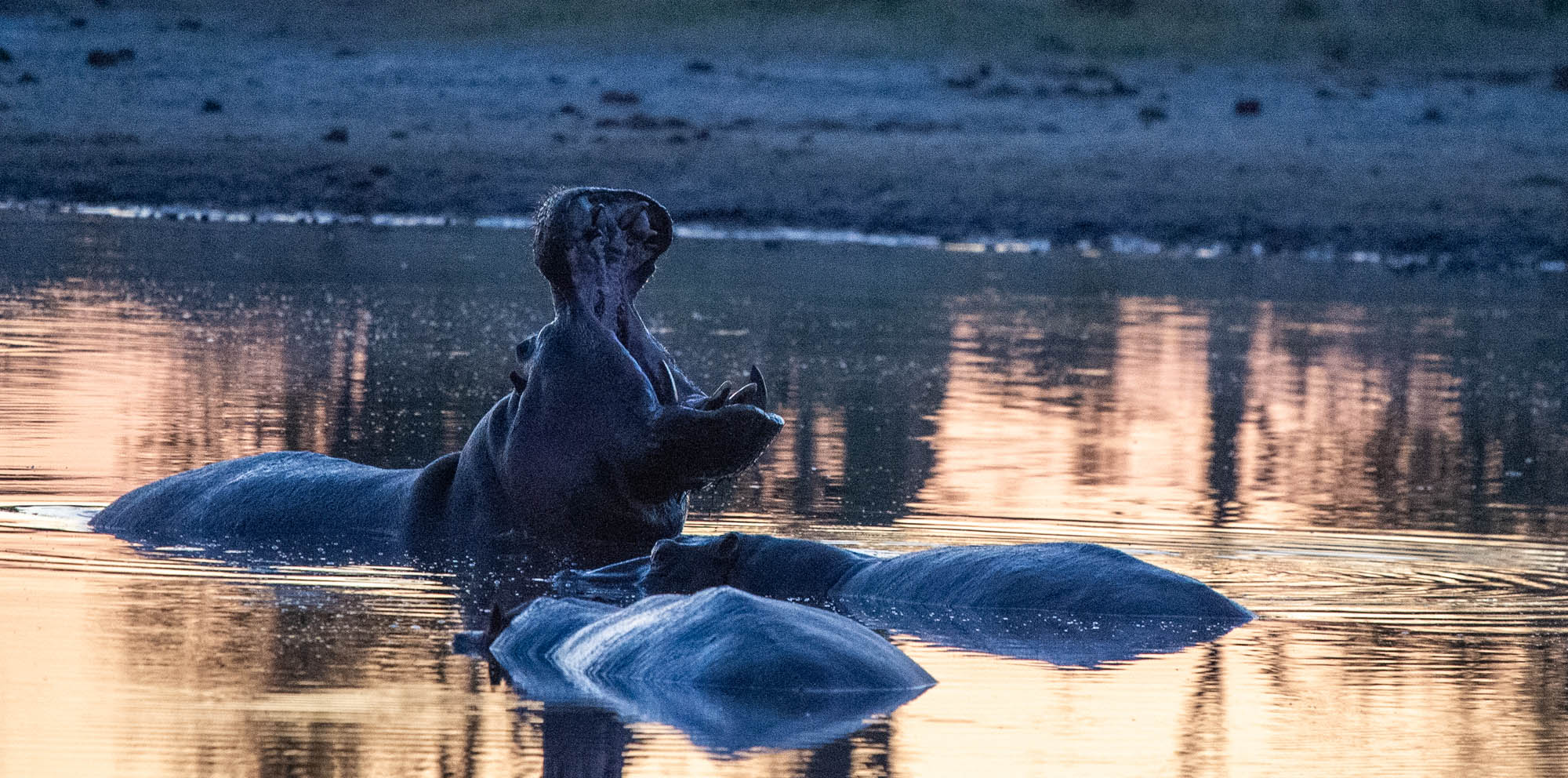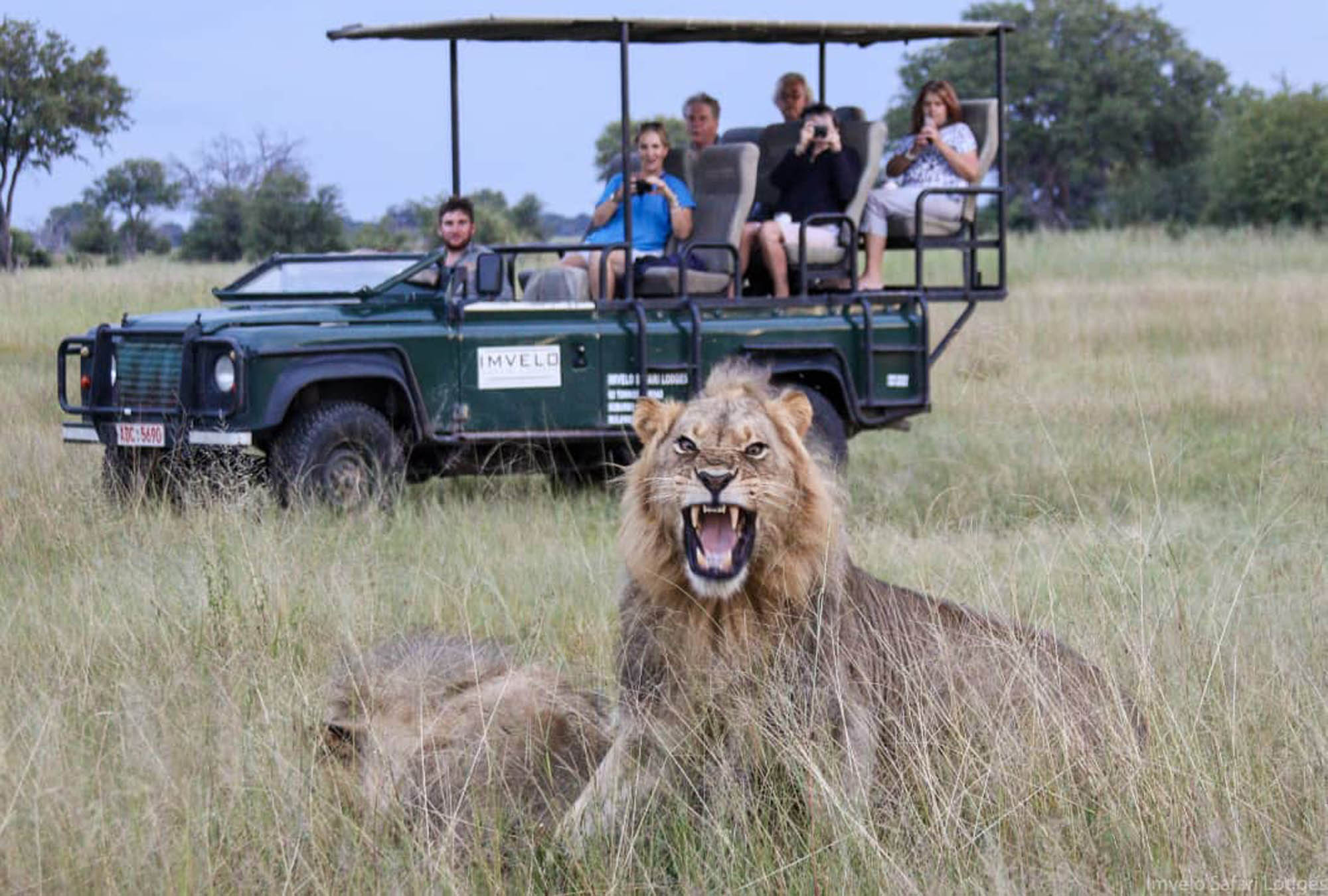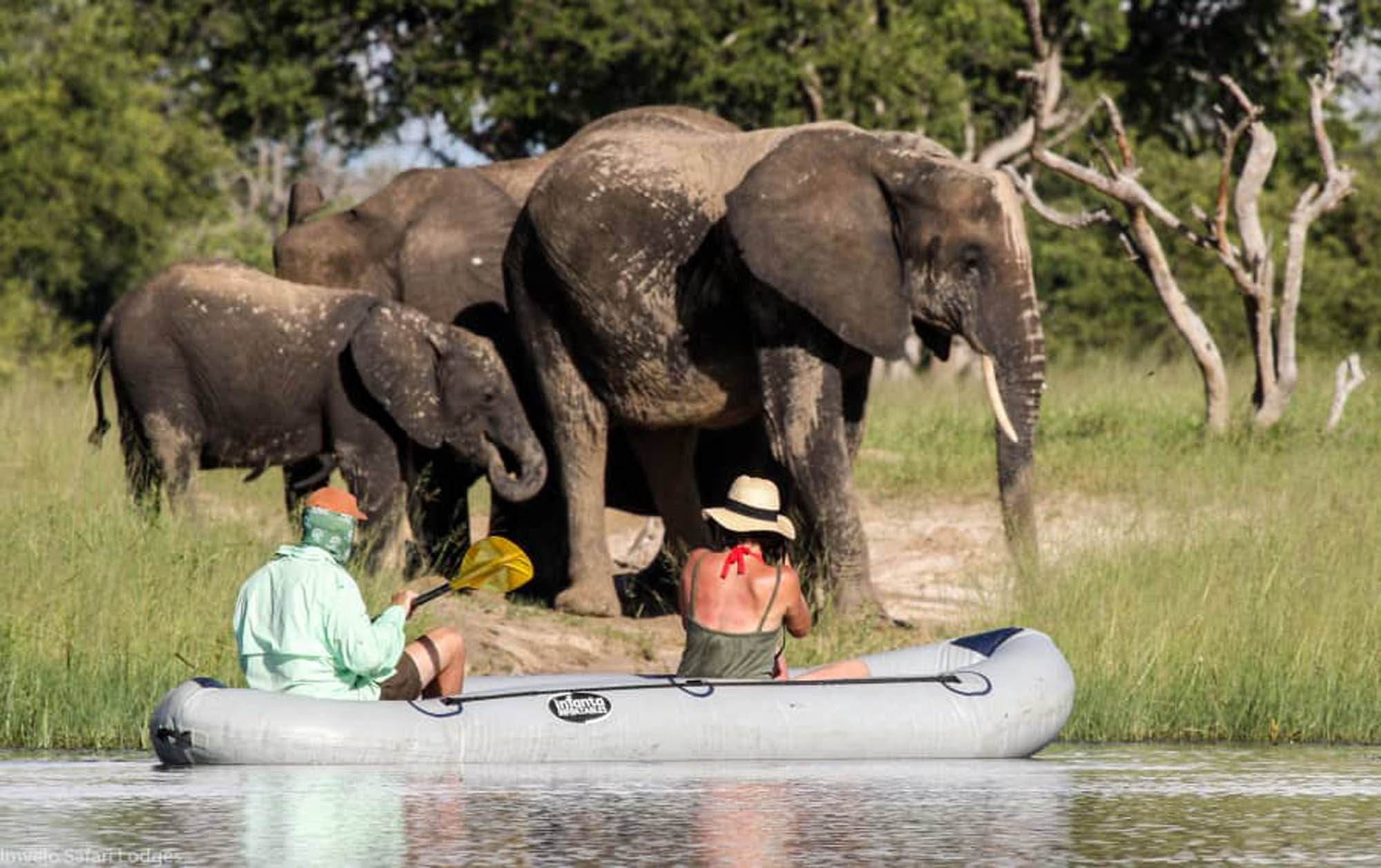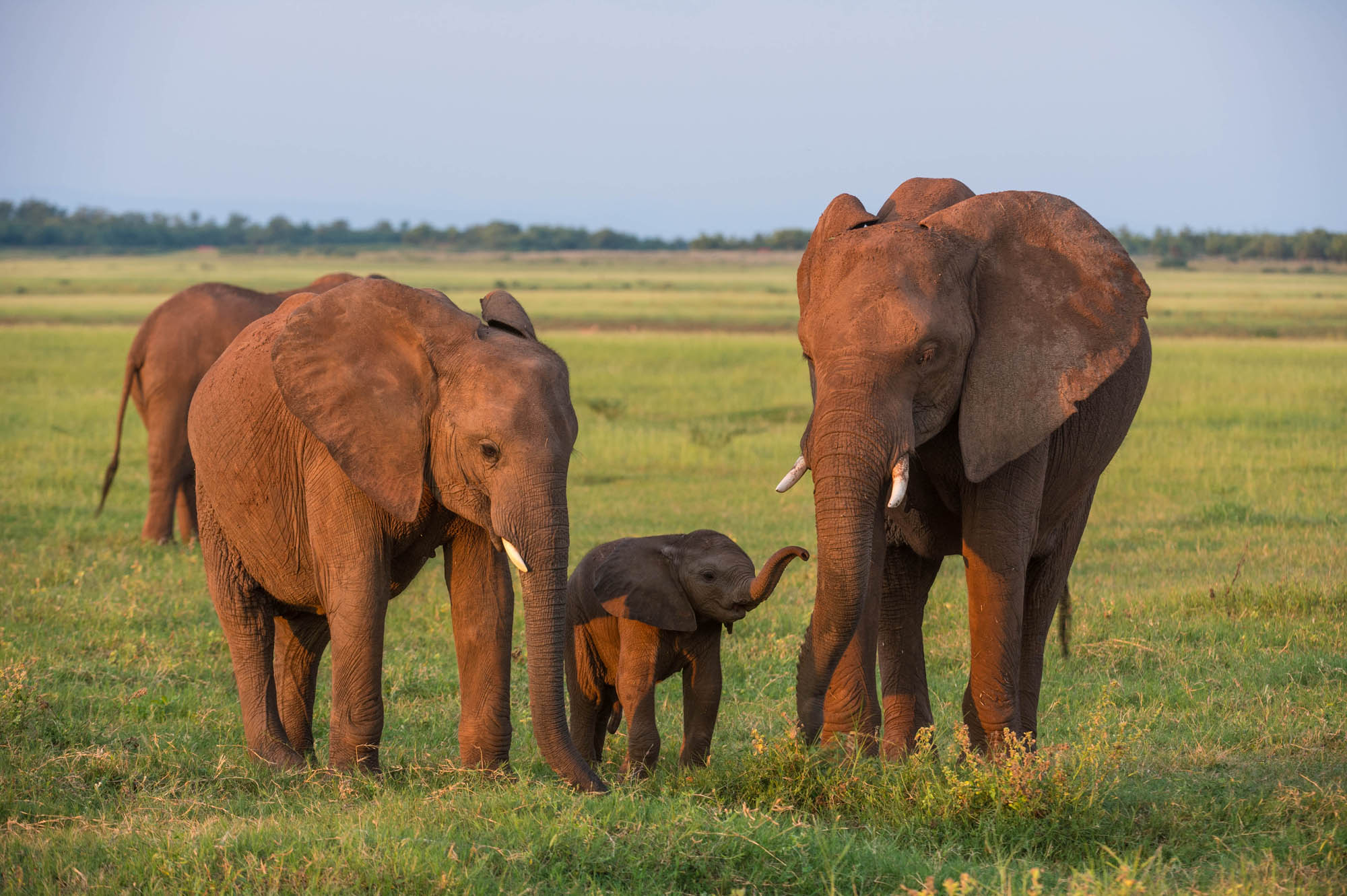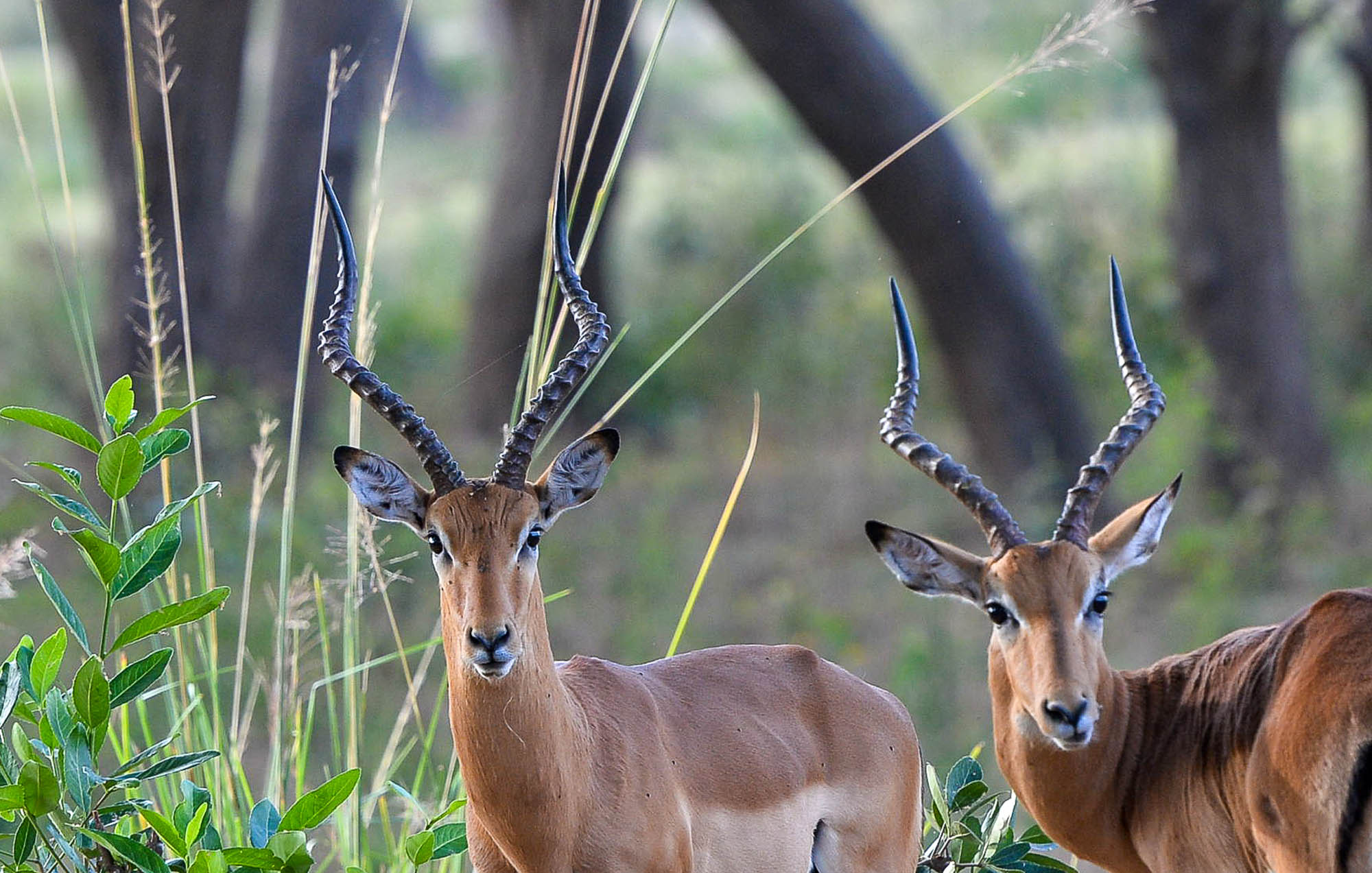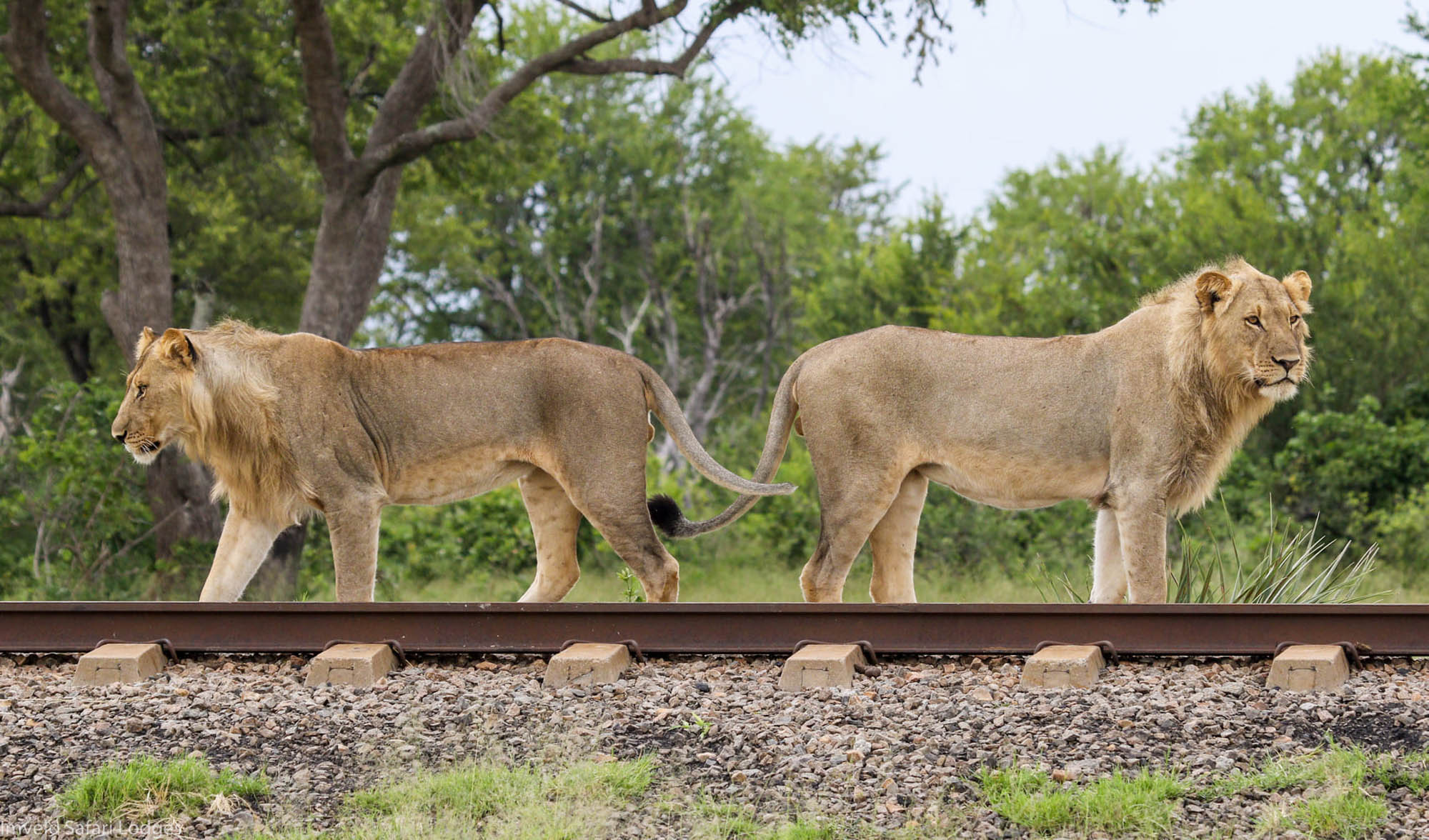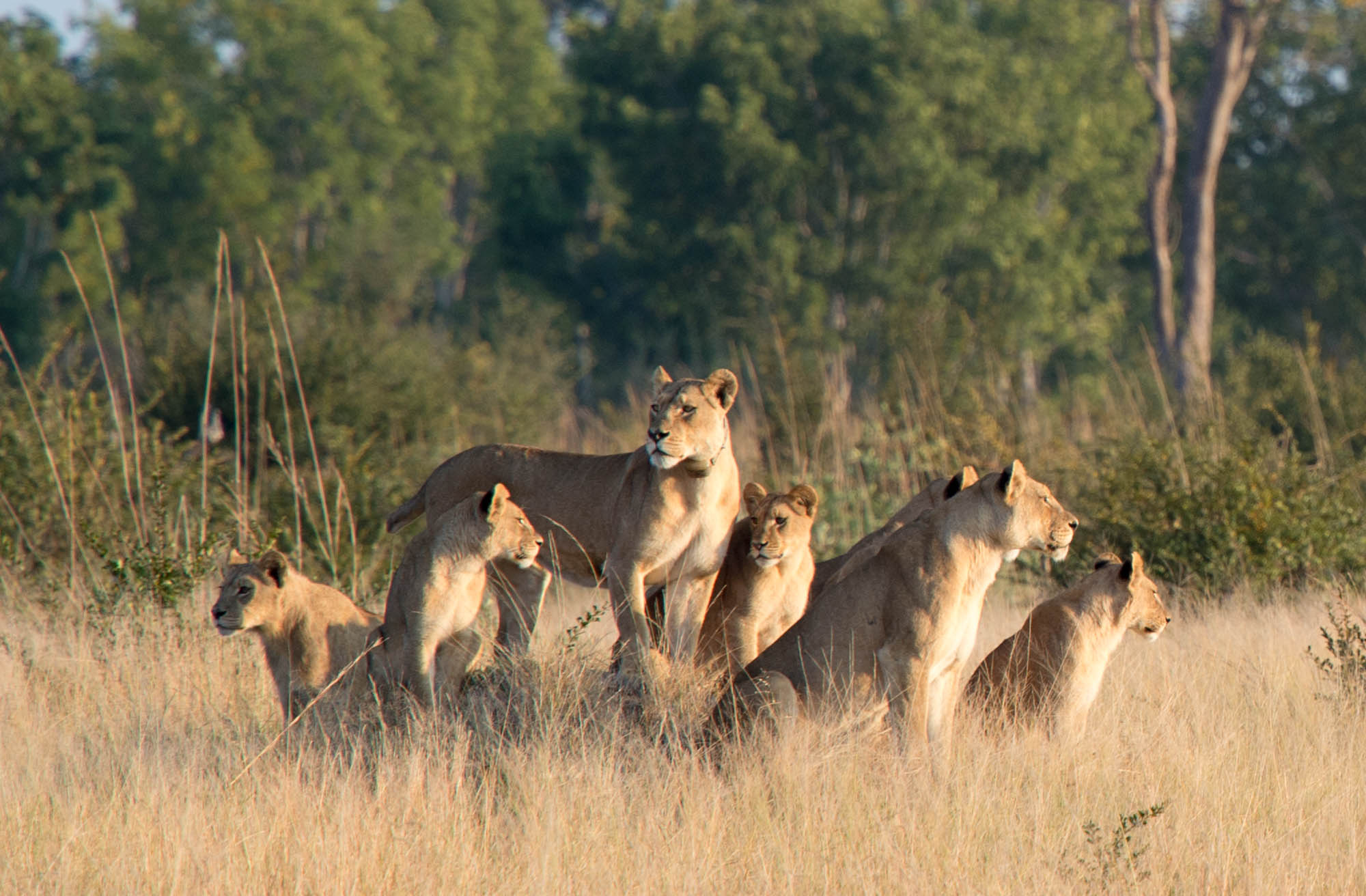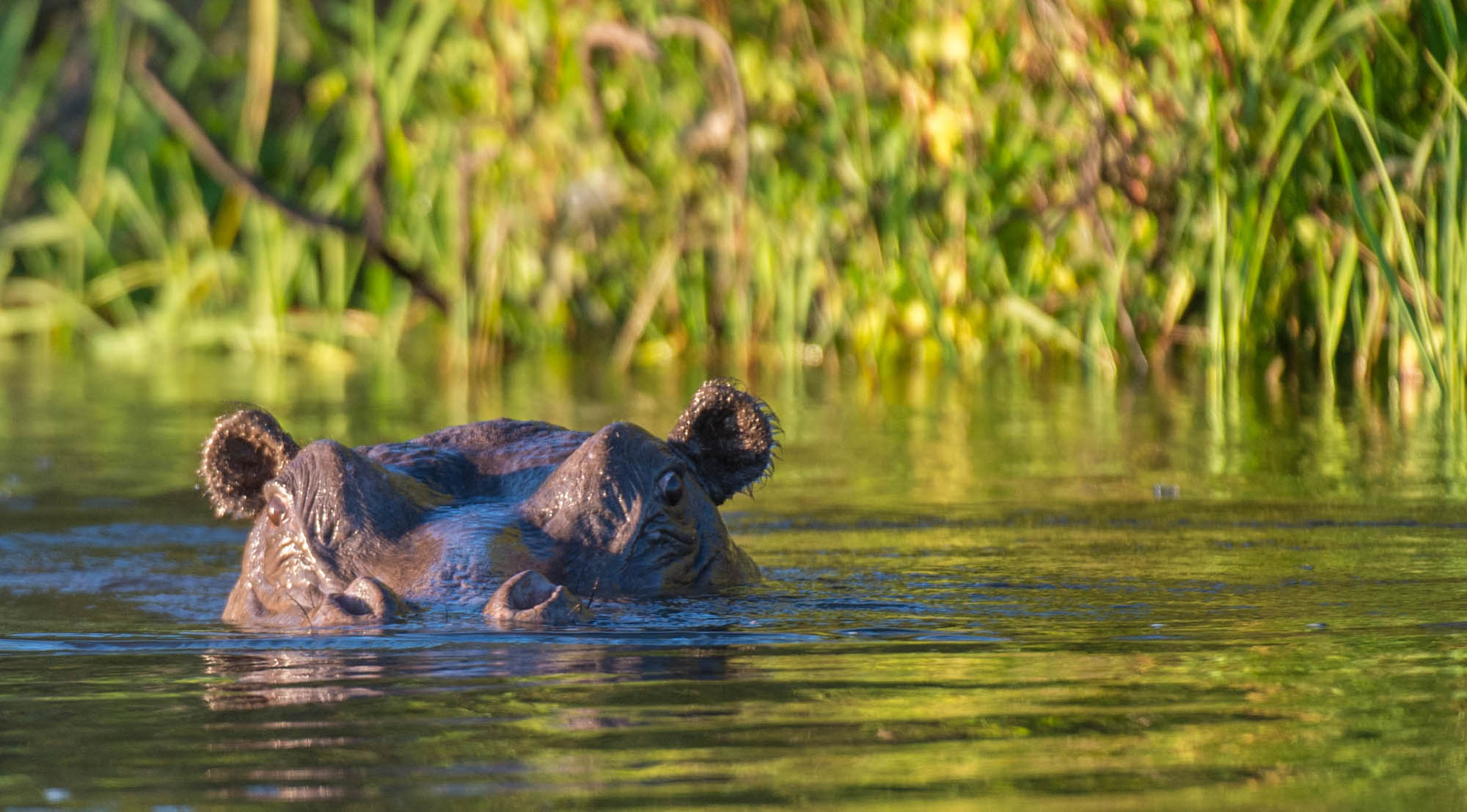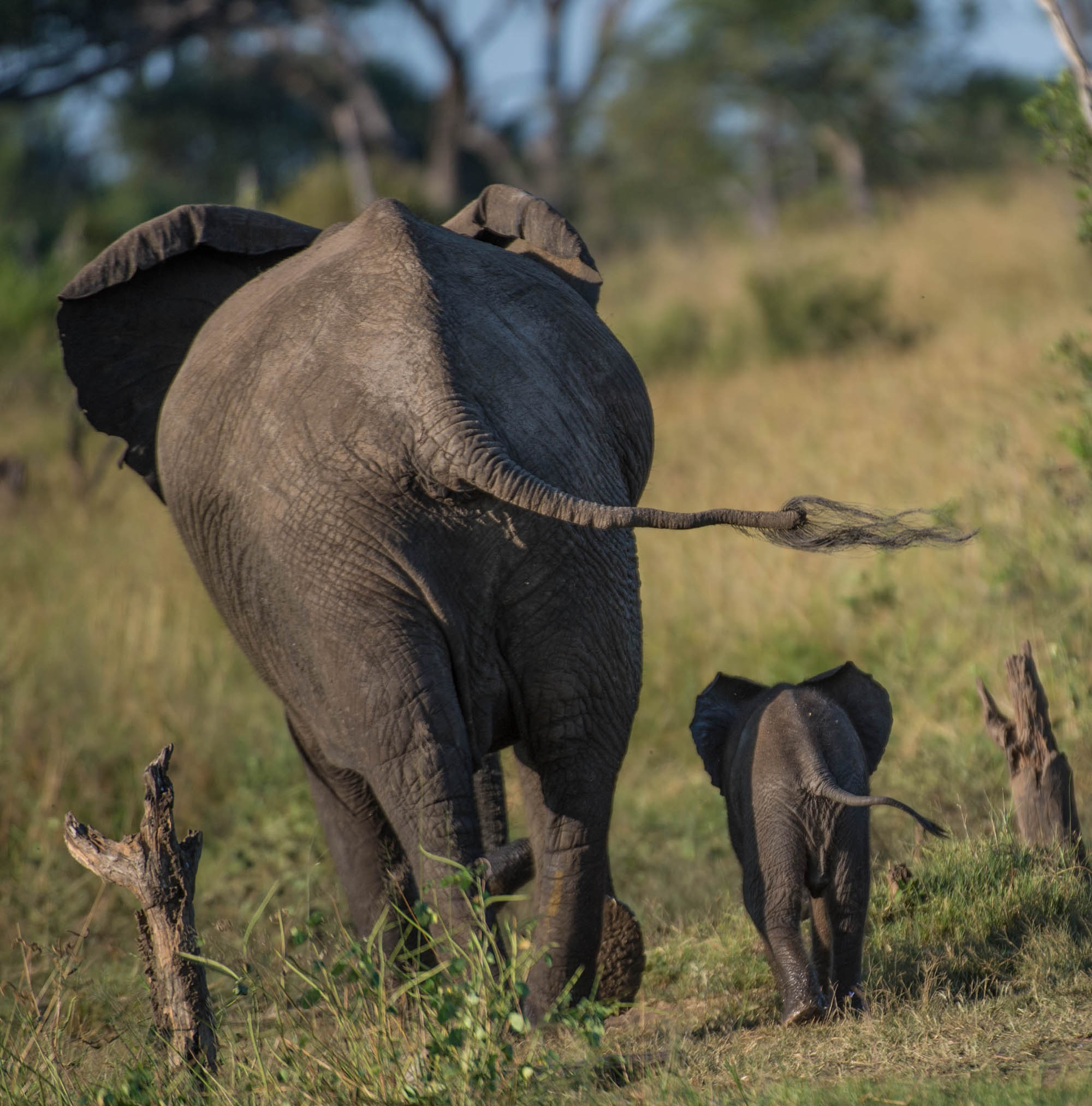Visitors from North America rarely make it to either Lake Kariba or Matusadona National Park in Zimbabwe, which is too bad. Combined with Victoria Falls and either Hwange or Mana Pools, Lake Kariba adds yet another layer of diversity to the already absorbing Zimbabwean experience. Boat safaris, tiger fishing, lake cruises, foot safaris, birdwatching and now even a sleepout on a luxury yacht will keep you occupied and will provide a nice change of pace from game drives.
Bumi Hills Lodge
Leaving for Bumi Hills from Victoria Falls in May this year, we were in the smaller Cessna 206 which flies pretty low so we were able to get some good views of Kariba on the approach. From the Bumi Hills airstrip it is a very short distance to get to camp – maybe 10 minutes. We met our guide Max on arrival in camp. The lodge is gorgeous with spectacular views of the lake and the surrounding floodplains. You can see elephants from the main area – they look tiny.
Bumi Hills Lodge has numerous activities on offer including game drives and walks as well as a boat cruise or fishing – or most likely a combination. There is a spa available as well as a 24/7 fitness center. A village visit was also mentioned if guests want to do it. We suggest that it be requested in advance. The main area at Bumi Hills has an infinity pool, likely the best one on the lake. Many a gaze has been directed over the lake from this elevated spot with the pool having been around for decades; the original Bumi Hills Safari Lodge opened in 1975.
The rooms are as nice as you would expect. All with great views, plenty of space, complete with bath and outdoor shower. African Bush Camps offer essentially a room attendant as well as a personal host to take care of your every need. I really do feel like they work well together and enable you to get the most out of your stay.
Our evening game drive was productive. I did not expect to see the quantity of animals that we did, gathered in the open areas near the lake. Tons of impala as well as zebra, bushbuck, warthogs, and elephants, as well as bird species in high numbers. Sunset was beautiful – even beyond the normally enthralling African sunset. On the way back to camp with the spotlight, we saw a white-tailed mongoose and side-striped jackal. Porcupines live underneath the camp and the staff pointed them out to us just before dinner.
The food was good at Bumi Hills. Lunch was a ‘build your own pizza’ and for dinner we had the choice of lamb chops or stuffed chicken. Of course we both went with lamb. It was good; but Bert’s has it beat by a good margin.
For the morning activity we decided to go fishing. We were looking for bream and vundu (a large variety of catfish) because it is really not a great season for tiger fish. Our first spot was close to where the boat was docked. The area did not seem like it was very active and we quickly moved on. The second spot was another story and we started reeling in bream constantly. They are good fun and while we caught them our guide Max threw out a different line to see if he could snag a vundu. That line finally hit and Christine managed to pull in our first catfish. It was sizable but the species can grow much larger. We are hoping to take another shot at landing a whopper at Changa.
In the afternoon Christine had an hour massage scheduled and while she was busy with that I took a swim in the infinity pool. Simply spectacular views out onto the lake and the water was the perfect temperature. Great place to spend an afternoon!! After this we enjoyed a quick lunch before heading back to the room.
Our evening activity was a sundowner cruise. This time we went with four other people. We started quite late, around 4:00. It took us a little while but we sped out to a spot in the middle of a large number of long dead mopane trees, dating back to when the dam was built in the late 1950s. Around us all types of birds – but predominantly cormorants – were roosting for the night. No predators out here for them in the tall dead trees. The sunset was top notch but overall the activity felt a bit rushed and while it was nice I would only do it the one time.
Nights at Bumi are pretty because you get to see all the commercial boats out on the lake with their lights fishing for small sardine-like fish called kapenta. The boats do not move and use lights to attract the fish to their nets and then periodically lift them. They can do this a total of 4 times give or take during a night. They will then let the fish dry during the day and package them for sale. All the fishermen pay to obtain a license to fish in the lake and it seems like the populations of the different species of fish are being fairly well maintained. With all the lights it looks almost like a floating city and with the elevated views from the lodge it is quite a scene.
Dinner was two delicious curry options, beef or chicken. Dessert was a fabulous passionfruit panna cotta.
Changa Camp
The following morning our flight to Changa was quite early so we just had breakfast before being transferred to the airstrip. We then had a 15-to-20-minute flight to Changa’s airstrip followed by a 25–30-minute transfer to camp. We spotted two huge male buffalo mudbathing as we landed. We met our guide Crispen on arrival. Changa is located inside the Matusadona National Park, unlike Bumi Hills, which is adjacent to it on community land. It is right on the edge of the floodplain overlooking Lake Kariba. A similar variety of activities are offered at both camps.
I spent a bit of the afternoon in the pool in the main area. The water temperature was cold but very refreshing. I was joined in the distance by a solitary elephant and a hippo that decided to get a head start on dinner. Christine spotted a snake near the restroom, but it slithered off before I could get a look at it. The camp manager had told us that snakes are around but that 99 percent were not venomous.
For our first evening we chose to go take a look at Sanyati Gorge (45 minute to an hour boat ride). It was worthwhile and I would recommend it. The gorge is scenic, very rocky with tall hills surrounding it and lush forests and plants surrounding you. You will see a lot of crocs so if that is something you are interested in this is just the ticket. We ended the activity with a sundowner at the lake before heading back to camp.
Changa is more rustic than Bumi for sure but has its own charm. The main area is a bit sparse but there is a pool and you have a good view of the lake. The rooms are nicer than I was imagining they would be. Outdoor bath and shower available.
For dinner we had pork belly and it was really good. Dessert was a caramel panna cotta. Activities are decided on during dinner the night before. So we decided at dinner that we would like to do an early morning game drive with a packed lunch.
Morning wake up was at 5:30. Coffee was delivered to the room along with some breakfast rusks. We set off with a packed breakfast to make the most of the cooler morning temperatures. The drive started off slowly as we saw only the occasional antelope, warthog or baboon. Things started picking up as we got a bit further from camp and we started spotting elephants with some regularity as well as zebras which were recently semi-reintroduced by African Parks. Their numbers had been decimated before due to a large lion population and although they were still around their numbers had dwindled. African Parks took over Matusadona in 2019 and have started implementing new conservation practices such as strictly enforcing anti-poaching and reintroducing species that have previously been wiped out.
Speaking of lions, their numbers have also fallen. When the lake floods many of the prey animals wind up starving to death which is a boon in the short term but long term it forces the lions to rely on hunting hippo or even crocodiles. Their numbers are increasing now though with the plentiful availability of prey species. In fact there is a pride of over 20 lions in the park that have a territory from Changa all the way to the border, the Tshinga River.
One of the highlights was spotting a leopard tortoise hastily making its way across the road. It turtled up when we approached but Crispen turned off the engine and after a little while you could see the head peeking out and sure enough the arms and legs followed. It started to move again but at a much slower pace than before. These guys can live between 250 to 300 years! Assuming they don’t run into the right predator, that is.
By late May the area was still green and there was plenty of food and even water dispersed in the thick bushy areas. This made game viewing tough but as the water dries up and the food gets eaten all of the animals will start to congregate around the lake which should make for a spectacular sight. Even before the dry season had properly set in, there were large herds of antelope and zebra as well as families of elephants at the shoreline or feeding in the floodplains. This year the later stages of the dry season will be especially tough because there was not a lot of rain. The water level of the whole lake is low and it has not been at full capacity since 2013. Hopefully they receive more rain in the coming years.
For our evening activity we tried our luck with some fishing. This activity gets started a little bit later than others so that the winds die down and the lake becomes still. We only had to travel a short while from the camp’s dock to get to our fishing spot. Things started slowly but picked up after the first fish. We wound up with a couple of good-sized bream as well as several ‘squeakers’ which seem to be an invasive species. They look like a type of small catfish with a vicious set of spines that can even be dangerous for crocodiles to eat. We enjoyed a sundowner before heading back to camp.
The following morning we woke up at 5:30am for a game drive. We were out of camp by around 6. Temperatures are cooler in the mornings but not exceptionally so. By midday it got up to the mid 80s. Again we had no luck with predators but enjoyed some marvelous landscapes and plenty of plains game and elephants. As the numbers of plains game continue to increase you can expect a slow increase in the predators as well. As the season continues and the availability of water becomes more scarce the animals will really start to congregate around the lake making for some epic scenes. June and July should bring more moderate temperatures but it will still be drying by September, October and November which could be extraordinary. Albeit possibly at the cost of your sanity with some real extreme heat. Such is life on safari.
Lyndon is ready to answer any questions you may have about visiting the Matusadona National Park area in Zimbabwe, as well as Hwange and Victoria Falls. He can be reached at lyndon@fisheaglesafaris.com or by calling our office any time (irrespective of your time zone) at 1-800-513-5222. Lyndon or Jason will call you back.


